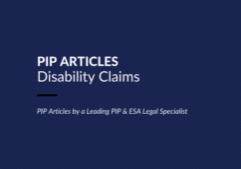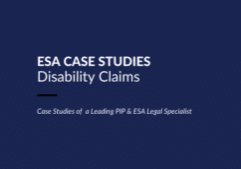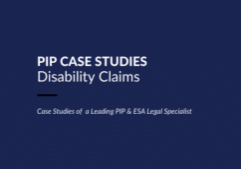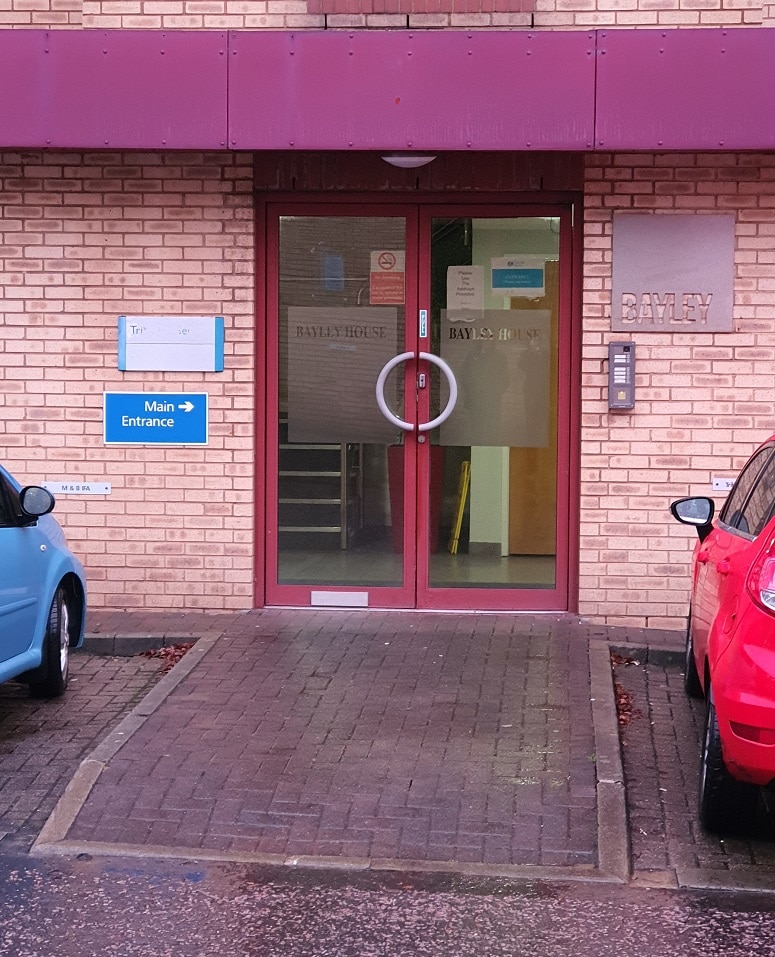What illness qualifies for PIP?
I am often asked whether having a particular medical condition means that they are entitled to personal independence payment (PIP). It is a very understandable question, but unfortunately, I see it as the wrong question. There are medical benefits, but PIP is not what one of them. If you take industrial injury disablement benefit (IIDB), which can be paid for industrial diseases, you could say that a starting point is to have a particular medical condition, but even here, the work you have been doing has to be one in the list included in the law, so the claimant might have had exposure to particular substances or the use of certain types of equipment. Tick both of those boxes and you still come to the assessment part of looking at how the symptoms impact on the ability to function.
Claiming without a diagnosis
The position with PIP is different; the law says that you don’t even have to have a medical diagnosis. With the appeal I was preparing yesterday, the consultant uses the phrase ‘medically unexplained’. Claiming PIP without a diagnosis can be challenging as I would expect a reluctance on the part of the assessor, Decision maker, and quite possibly a tribunal, to accept what you are saying; people like labels. The fact is though that the law says that no diagnosis is needed, so you just need to know where to look for this when it comes to an appeal.
Qualifying for PIP
If it is not about having a diagnosis on a list somewhere, what do you have to show? PIP is all about how you are affected, rather than what you have got. You can imagine two people who are both suffering from arthritis, but they are affected very differently. One is still able to function while the other is crippled by it. One can shop, perhaps look after children and/or work, while the other cannot manage any everyday personal tasks without using things to help them, or being helped by carers, family or friends. Remember too that PIP assesses you with your medication; it does not look at how you would be if you did not have it. You might have asthma, but PIP will assess you very differently if your symptoms are managed by medication. Clients will sometimes explain that they have a life-threatening condition or they have an organ might go pop at any time. PIP pretty much does not care. Entitlement to PIP is about the wording in the test; the 10 daily living activities and the 2 mobility activities, and importantly, whether the way in which you are affected fits the wording in the statements, what they call descriptors, within those 12 headings. Sometimes, the impact of symptoms on a client’s life can be considerable, but their problems do not fit the wording in the test, so they do not score points. PIP is not a subjective benefit; it is not a case of looking at their lives as a whole and the way in which the illness or disability has stopped them doing what they used to do. It is an objective test; it is a points-based benefit, so if you score enough points, you qualify for an award. Too few points and there is no award, however much anybody might empathise with your circumstances.
Claiming when not expected to live
The only exception to the above is that if a claimant has been given less than 6 months to live, and a form DS1500 has been completed by a doctor to confirm that, then they are fast-tracked to an award of enhanced rate daily living component, without any consideration of how they are affected by the condition, or a need to score points. Even these people have to qualify for the mobility component in the same way as any other claimant though.
Can I assess my own entitlement?
It is unlikely that you would be reading this if you did not have problems, and I understand your need to know whether you should be claiming PIP or not. Some people get through to me by mistake, believing that they are calling the Department. They were going to ask PIP if they should claim. I see this as a bad idea as, to my knowledge, they are not geared up to advise on this. Given how regularly they get decisions wrong, and routinely apply the law incorrectly, you should look elsewhere for an answer.
Where to go might depend on where you are and what services are in your area. You can get an idea by looking at our article on PIP for Depression and Anxiety and seeing which of the PIP test activities are relevant to you, then looking down the descriptors under each heading and adding up the points you think you should score. Remember that even if more than one descriptor applies to you under a heading (Preparing food, Engaging with others, etc), you only get the points for the higher scoring descriptor. For example, you might look at Preparing food and say that you need a seat because you can’t stand for long enough – 2 points for needing an aid; but because of your ADHD, you are easily distracted, as well as being impulsive, so have a history of leaving food to burn – 4 points for supervision. You only get the 4 points, not 6. You need at least 8 points for a component to get an award. Between 8 and 11 points will get you standard rate, and a score of 12 or more points qualifies for the enhanced rate. Self-assessing in this way is unlikely to give you an accurate score. I mean you the reader no disrespect when I say this; it is just that you need to know what the law says words and phrases used in the test mean. Some are defined in Part 1 of the Regulations, but a knowledge of Upper Tribunal case law would be needed to accurately assess your entitlement.
Advice centres and charities
If the person you see at an advice centre or charity knows what they are doing, you can get excellent help from here. I see nothing wrong with you asking what experience the person has, such as how long they have been advising people about PIP, what training they have had and whether they have represented at appeals. You are going to decide whether to claim, and you need to know what award you should have. There can be no guarantee that the assessor and Decision Maker will get it right when processing your claim, so you will rely in part on what advice you get at the start, when deciding whether to accept the Department’s decision or challenge it, including whether to appeal to a tribunal. The better the advice you get now, the better choices you are likely to make during the process. An award of PIP can be worth between £1,200 and over £7,700 a year. A lot of awards are for three years, so that could be £23,200 or more at stake; you may decide that it makes sense to get good quality advice
Law centres and legal help
You can find good quality help in the not-for-profit and professional sectors. Equally, going to a Law Centre or a firm of solicitors does not guarantee that you will talk to someone who has the right knowledge and experience, so ask. If your polite enquiry about this seems to cause irritation or offence, then I would walk away.
Just do it
You could just apply, with suitable help, of course. Yes, an experienced adviser could ask a few well-aimed questions and tell you whether you would be wasting your time with a claim, but more questions would usually be needed to tell you what award you should have. I would go through the test, asking very much the same questions as if I was helping by completing the form with them. There is an argument for saying that you may as well fill the form with them. That way you will pretty soon find out whether to file the form away or finish it and send it to PIP. It is rare for someone to go to this trouble only to find that there is no entitlement. You may be able to agree with your adviser that if there is no claim worth sending in, then they will make no charge for their time.
What illnesses qualify?
This is where we began, but you will have gathered that this is perhaps not the right question. Mental health, learning difficulties and physical problems can all be relevant to PIP. Many disabilities are invisible, so don’t let that put you off. Variable symptoms can be tricky to assess and describe, but it just makes it more important to find that good quality help. Fatigue seems to come up more than it used to, and the limitations that this can bring can be more difficult to get across on the page.
You are at least as likely to underestimate your entitlement to points in the PIP test as you are to overestimate it, so don’t put off applying for another day. Call them on 0800-197-2222 to get a form sent out to you. This personalised form, with your name, address and NI number, will take days to arrive, so start looking for help and advice while you wait.









